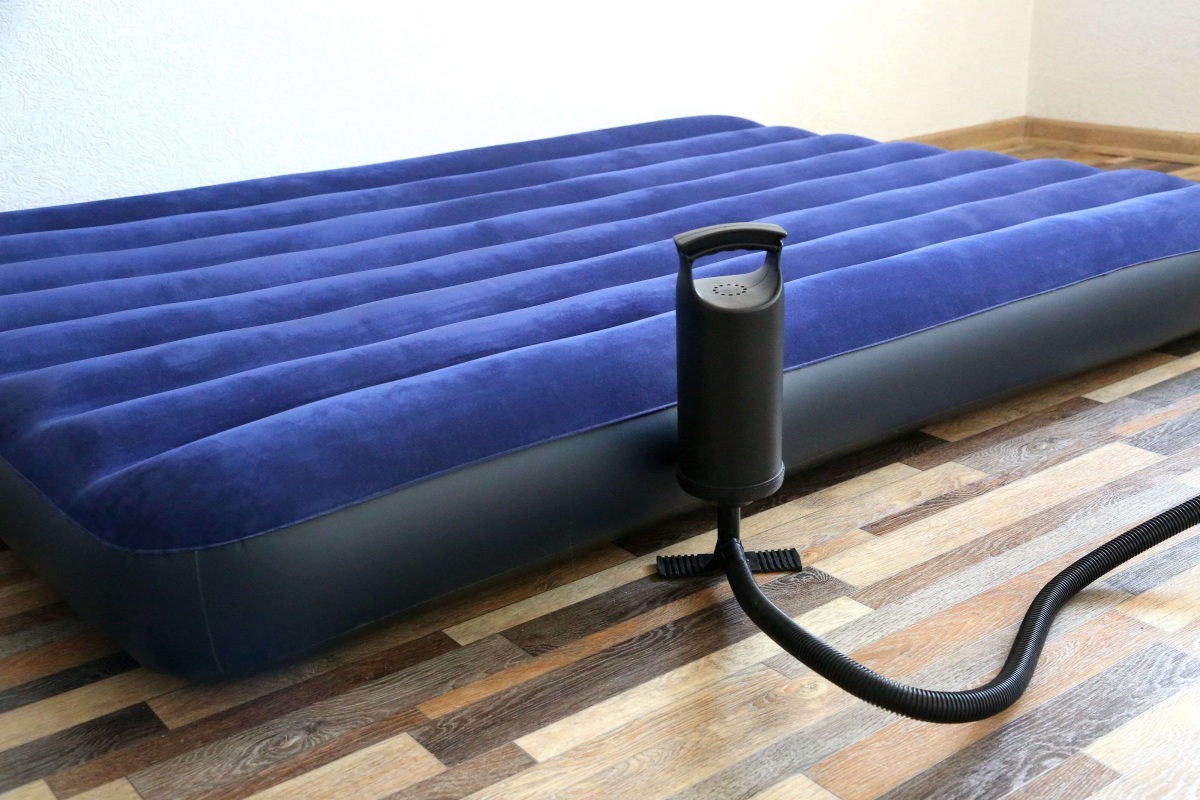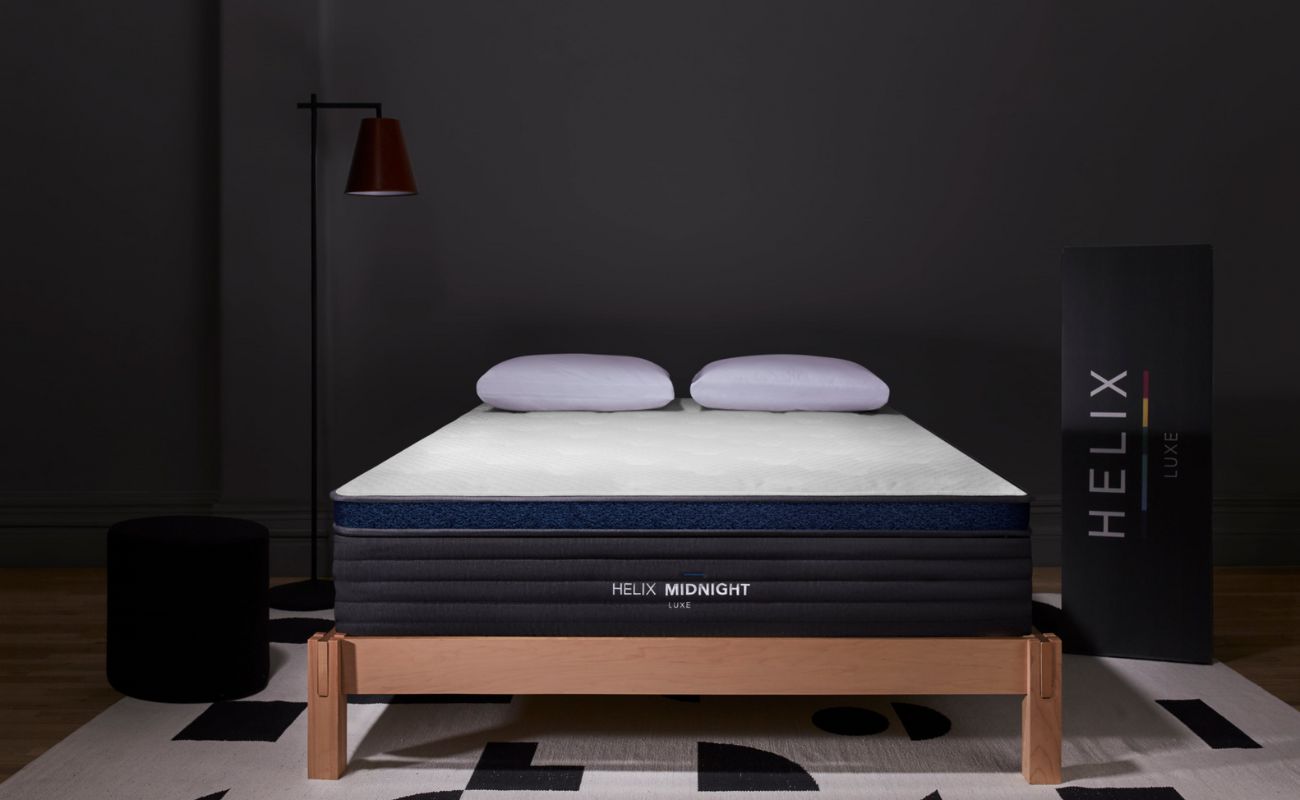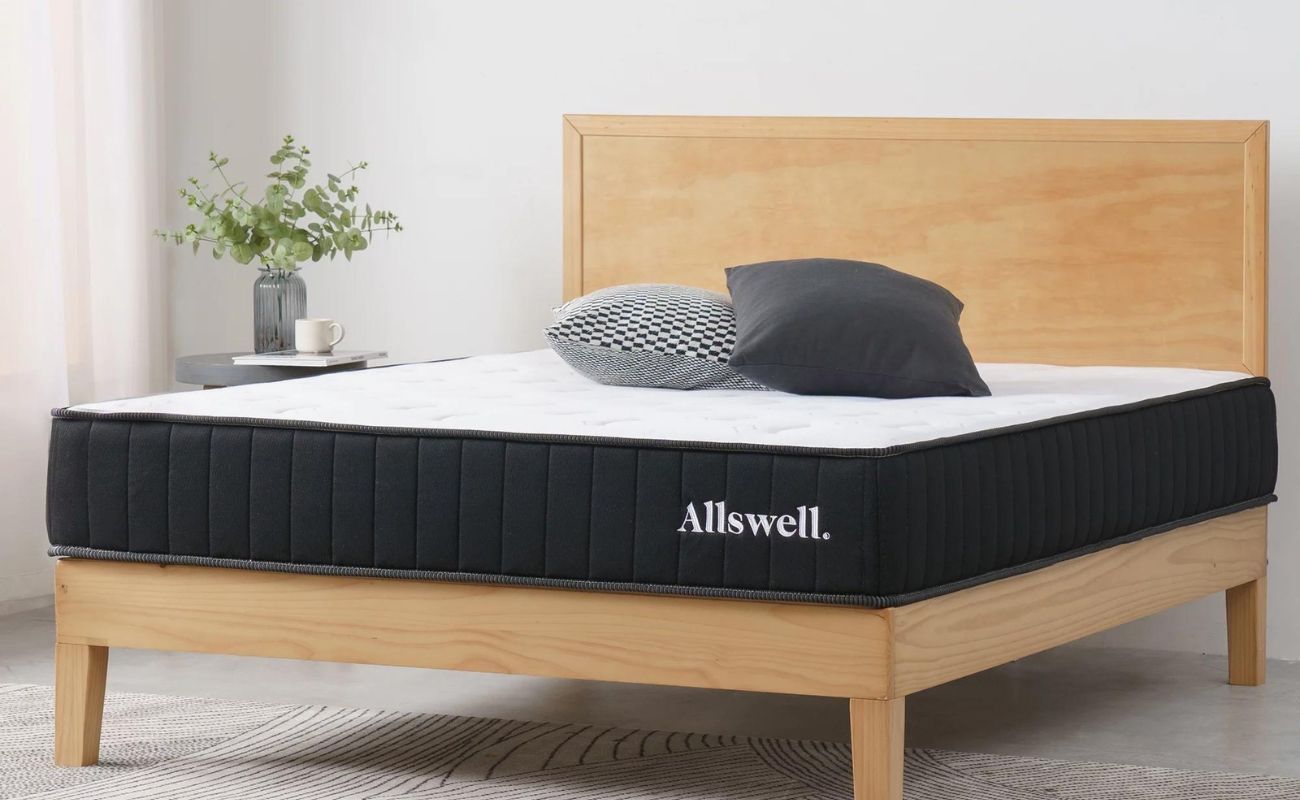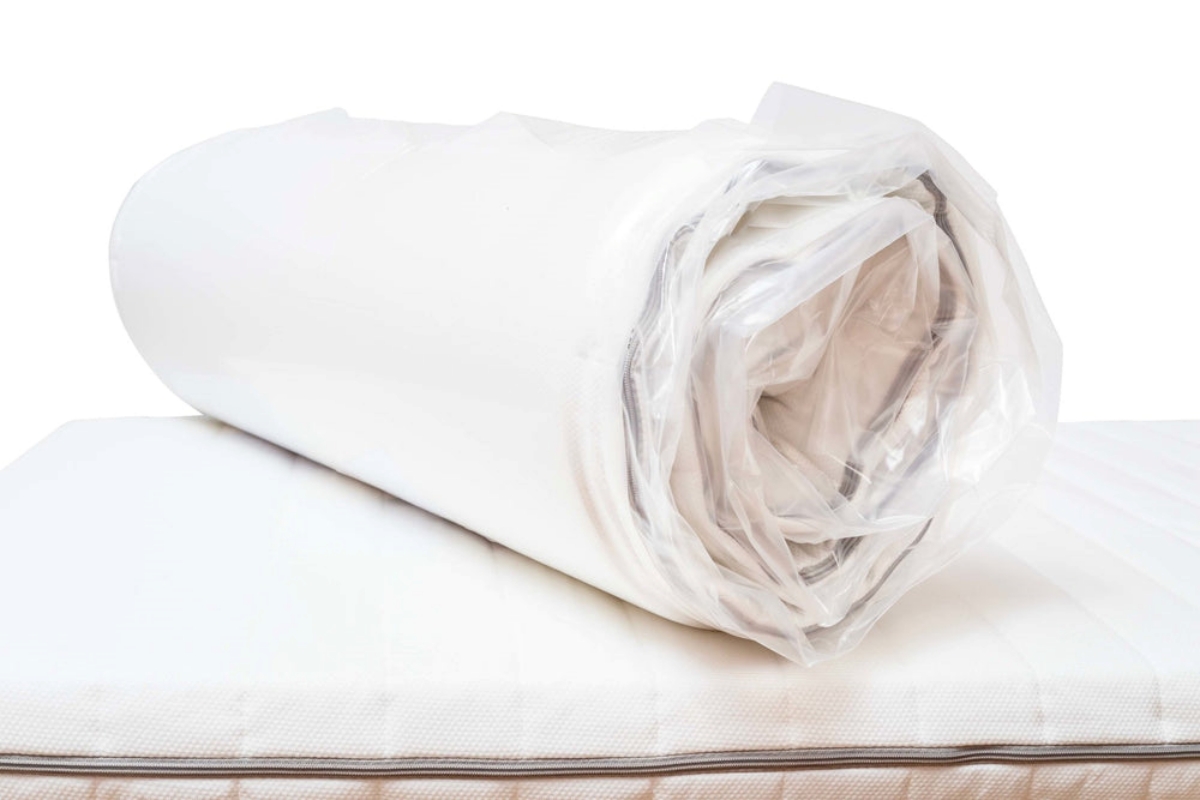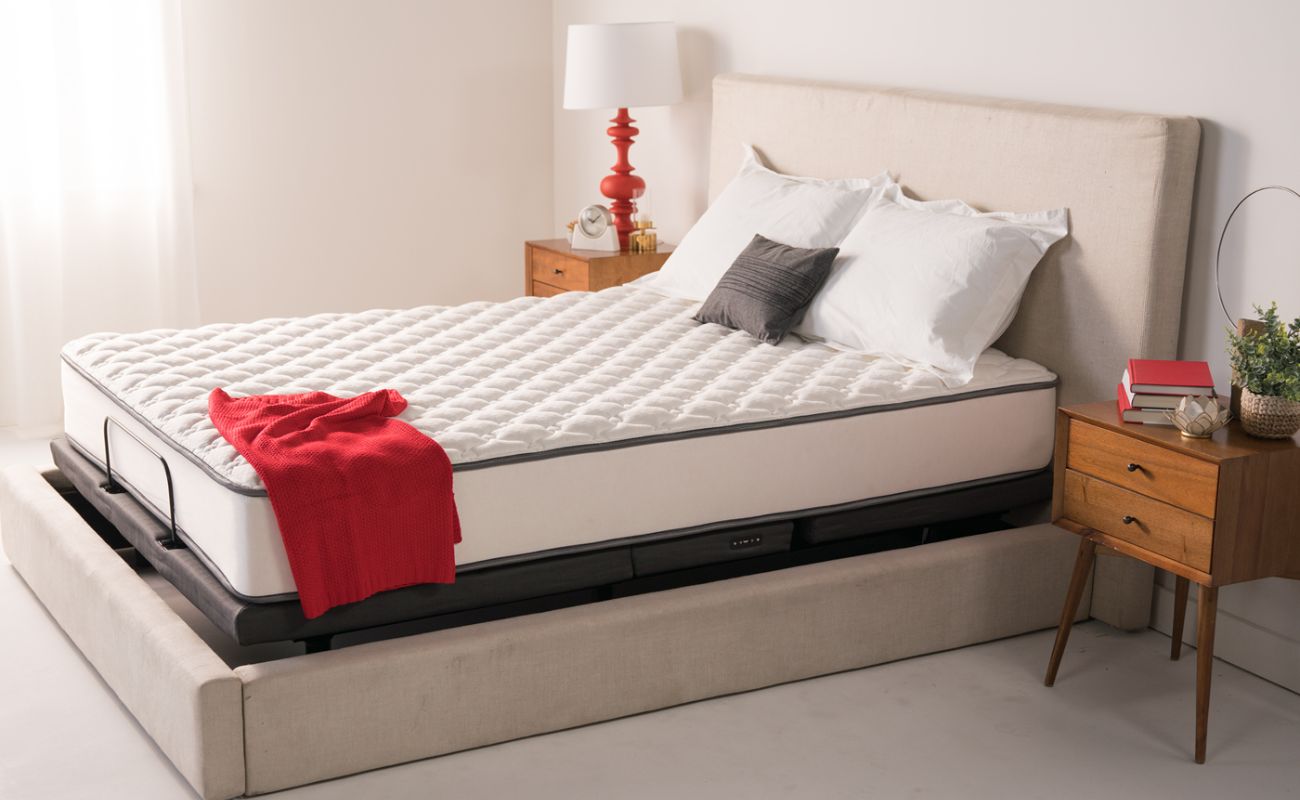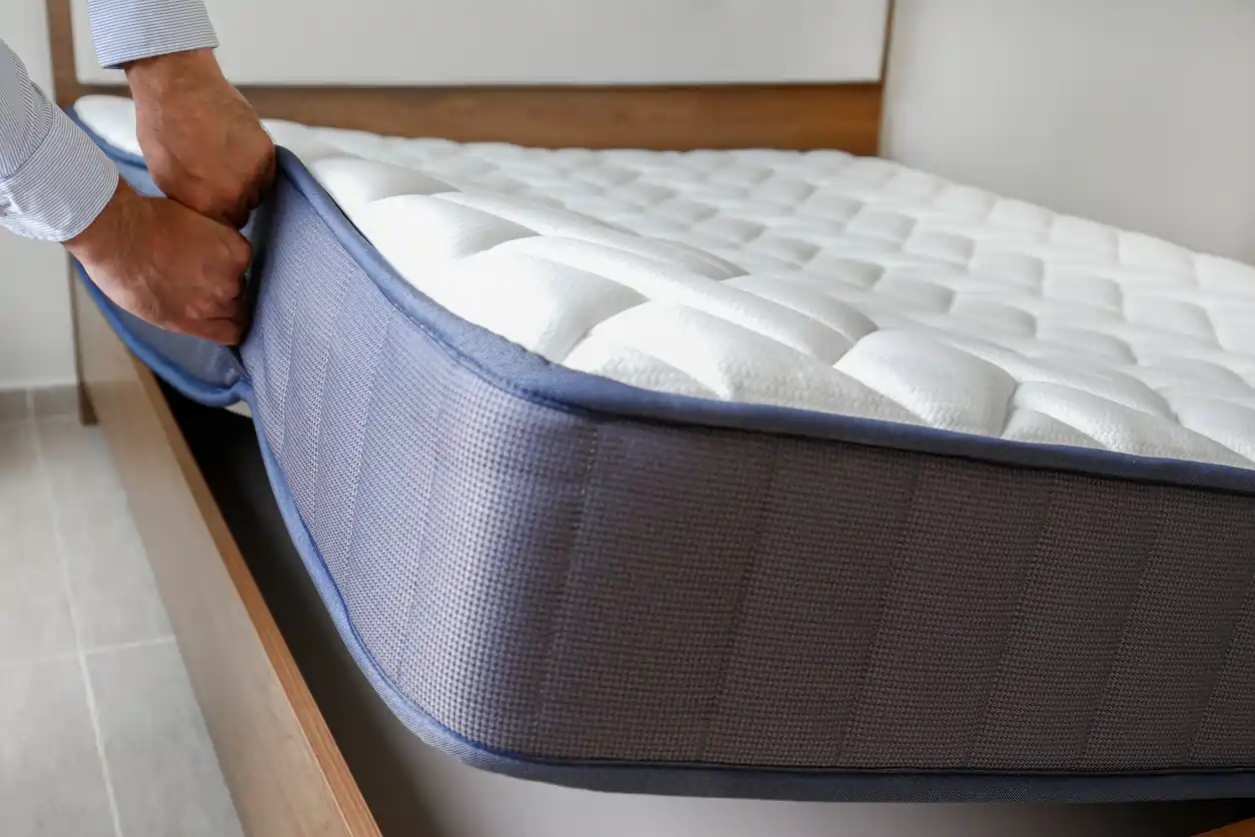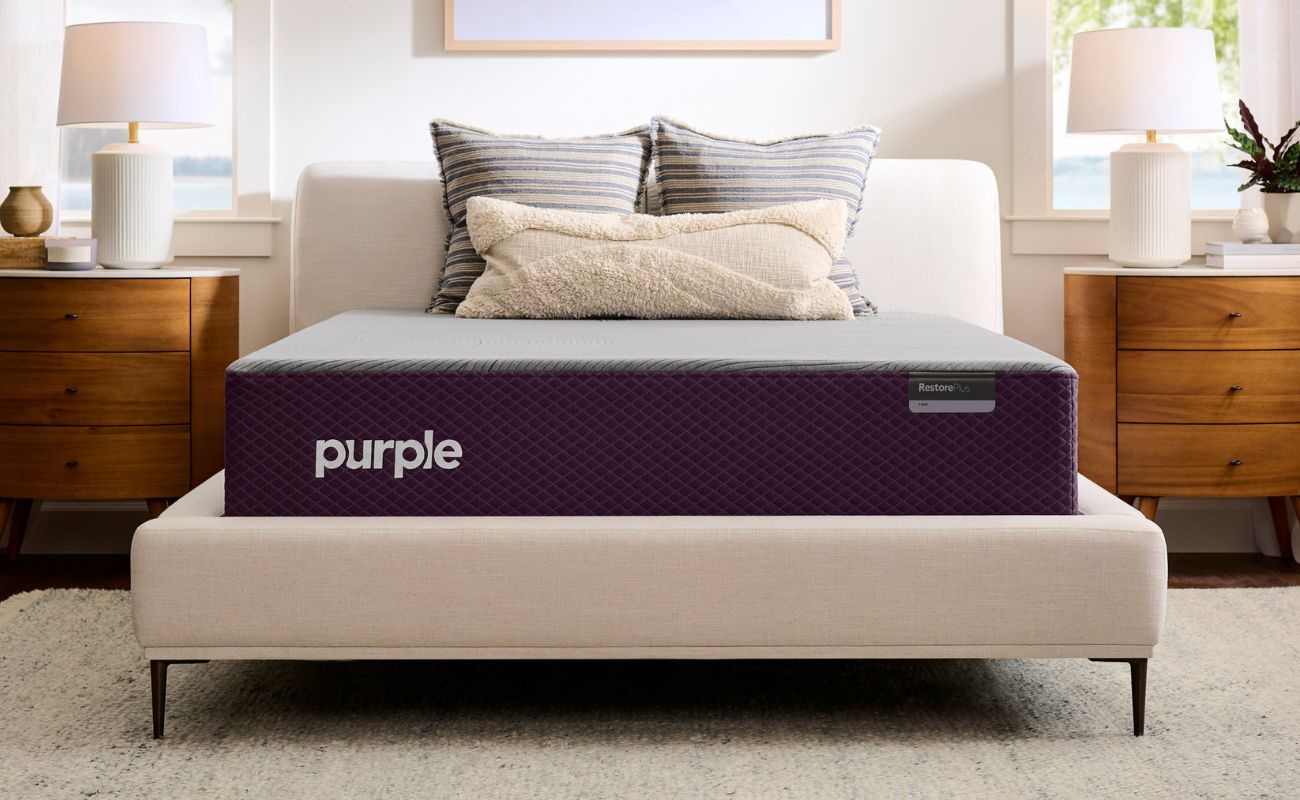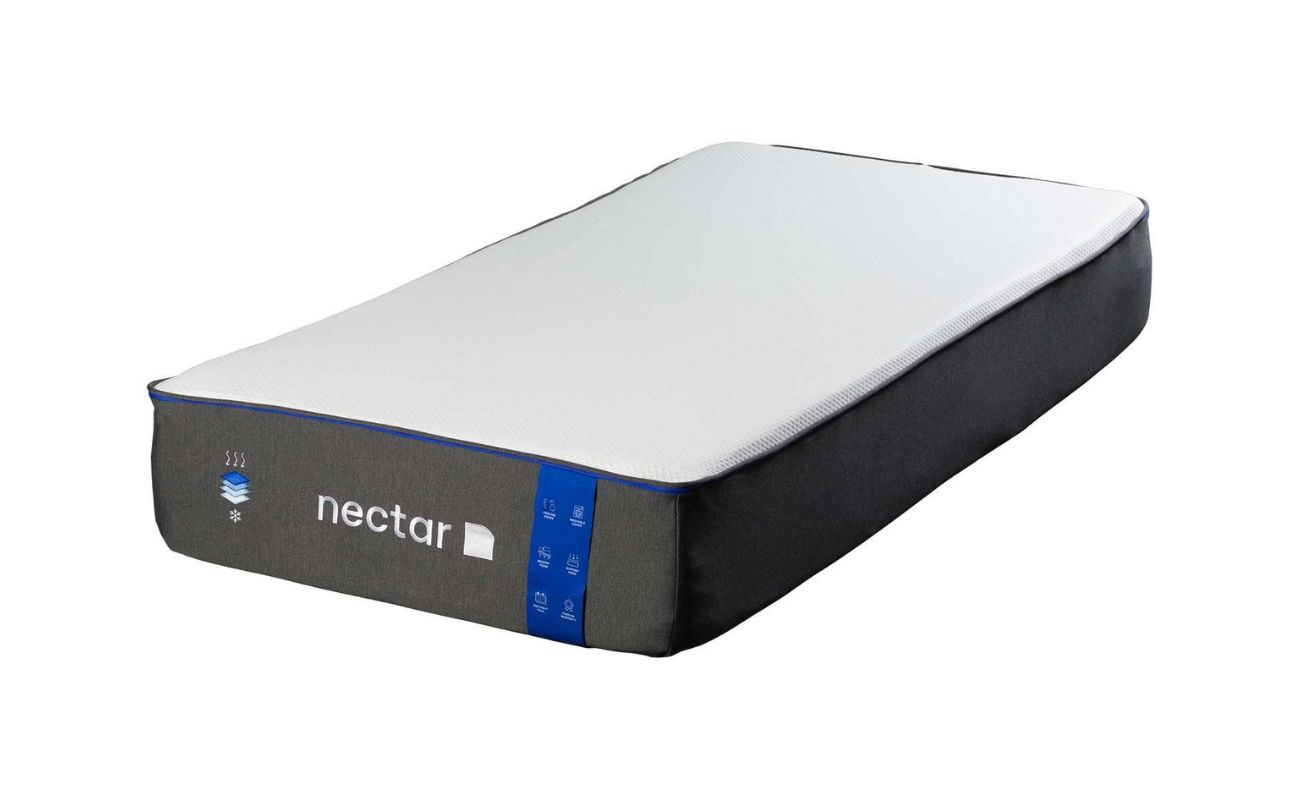Home>Furniture>Bedroom Furniture>How Long Does It Take To Get Used To A New Mattress
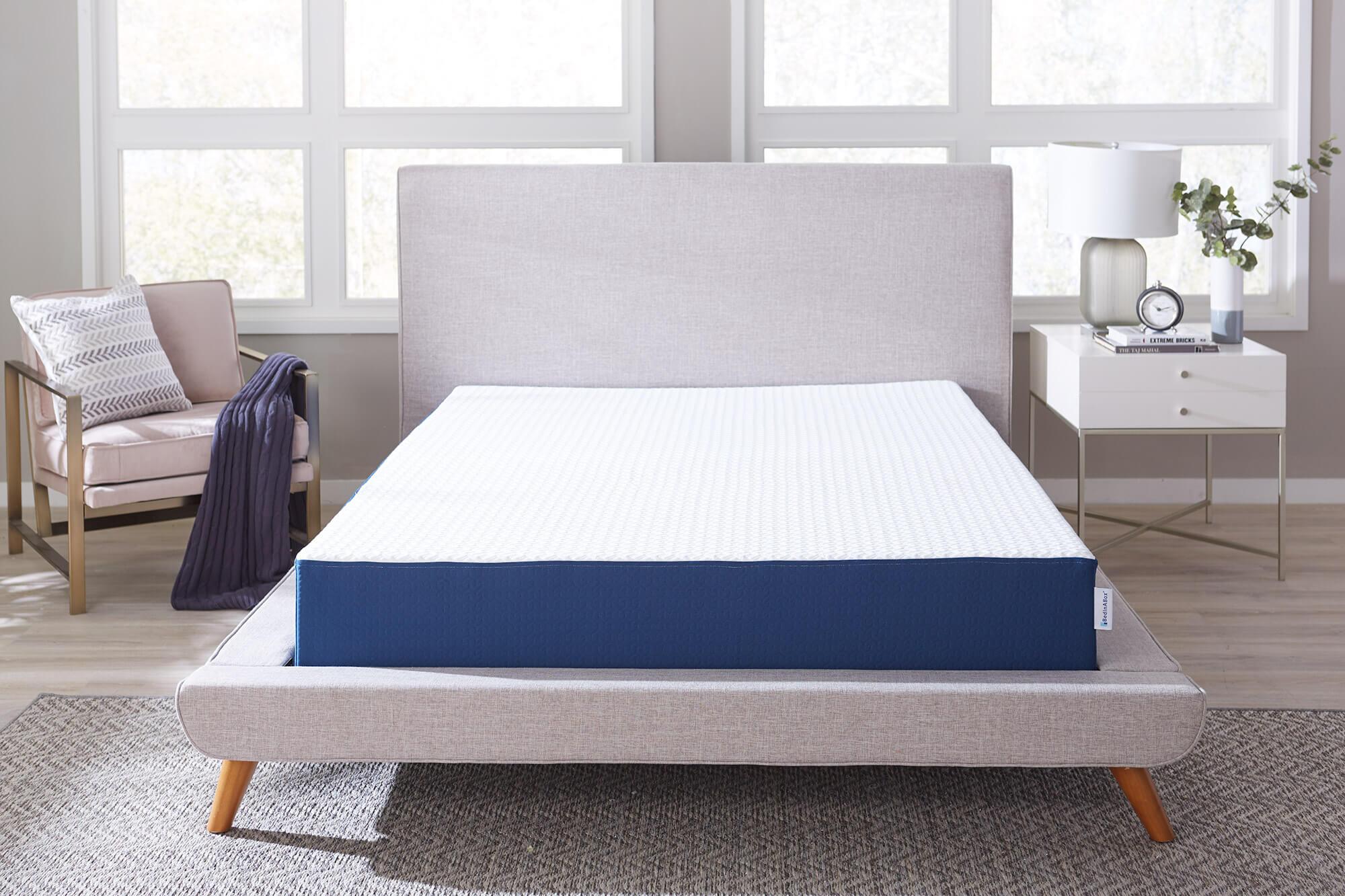

Bedroom Furniture
How Long Does It Take To Get Used To A New Mattress
Modified: September 1, 2024
Discover how long it takes to adjust to a new mattress and improve your sleeping experience. Find the perfect bedroom furniture for your comfort and restful nights.
(Many of the links in this article redirect to a specific reviewed product. Your purchase of these products through affiliate links helps to generate commission for Storables.com, at no extra cost. Learn more)
Introduction
Getting a new mattress is an exciting moment – the prospect of a comfortable and restful night’s sleep is something we all long for. However, adjusting to a new mattress can sometimes take time, and it’s important to understand the factors that can affect this process.
The adjustment period refers to the time it takes for your body to get used to the new mattress. This period can vary from person to person, depending on various factors such as mattress type, firmness level, and individual preferences. It’s crucial to allow yourself enough time to adapt to your new sleeping surface for optimal comfort and support.
In this article, we will explore the factors that can affect the adjustment period and provide you with tips to make the transition smoother. So, let’s dive in and discover how long it takes to get used to a new mattress!
Key Takeaways:
- Give yourself at least 30 days to adjust to a new mattress, stick to a consistent sleep schedule, and consider using a mattress topper for added comfort. Practicing good sleep hygiene and staying active can also facilitate the transition.
- Avoid common mistakes like not giving your body enough time to adapt, using an old pillow with a new mattress, or neglecting proper mattress maintenance. Pay attention to signs that your mattress may not be suitable, and don’t hesitate to reach out to the retailer or manufacturer for assistance.
Factors Affecting Adjustment Period
The adjustment period can be influenced by several factors. Understanding these factors can help manage your expectations and make the transition to your new mattress smoother. Here are the key factors to consider:
- Mattress Type: The type of mattress you choose plays a significant role in the adjustment period. Different types, such as memory foam, innerspring, latex, and hybrid, have distinct feel and support levels. Memory foam mattresses, for example, can take a bit longer to adjust to as they contour to your body shape.
- Firmness Level: The firmness of a mattress can also impact how quickly you adjust to it. If you switch from a soft mattress to a firm one (or vice versa), your body may need some time to adapt to the new level of support. It’s important to choose a firmness level that matches your preferred sleeping position and personal comfort preferences.
- Sleeping Habits: Your sleeping habits can affect how long it takes to get used to a new mattress. If you tend to move around a lot during the night, it may take longer to find your preferred sleeping positions and adjust to the new surface. Similarly, if you’re used to sleeping on a specific type of mattress for a long time, the adjustment period may be longer.
- Quality of Sleep Surface: The quality of your new mattress can also impact the adjustment period. A high-quality mattress that provides proper support and comfort can help you adjust more quickly. Conversely, a low-quality mattress may result in discomfort and prolong the adjustment process.
- Body Weight and Shape: Your body weight and shape can play a role in how quickly you adjust to a new mattress. Heavier individuals may require more time to get used to a different support system, while lighter individuals may find the adjustment period shorter.
- Personal Sensitivity: Every individual has a unique level of sensitivity. Some people may adjust to a new mattress quickly, while others may need more time. Factors like sensitivity to pressure points, body temperature, and motion transfer can influence how fast you get used to your new sleeping surface.
It’s important to keep in mind that the adjustment period is subjective and can vary from a few days to a few weeks. Patience and an understanding of these factors will help you navigate through this period more effectively. Now that we’ve explored the factors affecting the adjustment period, let’s move on to understanding how your sleep quality can be impacted during this time.
Sleep Quality During the Adjustment Period
During the adjustment period, it’s common to experience changes in your sleep quality. Your body needs time to adapt to the new mattress, and this can temporarily affect your sleeping patterns. Here’s what to expect:
- Initial Discomfort: When you transition to a new mattress, you may initially experience some discomfort. This can result from your body adjusting to the new support and pressure points. It’s normal to have a brief period of discomfort as your body finds its optimal alignment and adjusts to the new surface.
- Changes in Sleep Patterns: You might notice changes in your sleep patterns during the adjustment period. It’s common to experience difficulty falling asleep or waking up more frequently during the night. These disruptions can be a result of your body adapting to the new mattress and finding the most comfortable sleeping positions.
- Improved Sleep Quality: With time and patience, your sleep quality should improve as your body adjusts to the new mattress. The discomfort and disruptions you initially experienced will likely diminish, allowing you to enjoy a better night’s sleep.
- Increased Comfort and Support: As your body gradually gets used to the new mattress, you will start to experience increased comfort and support. The pressure points should be better aligned, and you’ll find it easier to maintain a proper sleeping posture. This can lead to reduced tossing and turning, resulting in a more restful sleep.
It’s important to remember that everyone’s adjustment period is different. Some individuals may adapt quickly, while others may take more time. Being patient with your body and allowing it to adjust at its own pace will ultimately lead to a better sleep experience on your new mattress.
Now that we have a better understanding of sleep quality during the adjustment period, let’s explore the process of how your body adapts to a new mattress.
Understanding Your Body’s Adaptation Process
When you switch to a new mattress, your body goes through an adaptation process to get used to the different support and comfort it offers. Understanding this process can help you manage your expectations and make the adjustment period more comfortable. Here’s how your body typically adapts:
- Breaking In the Mattress: Just like a new pair of shoes, a new mattress needs a “break-in” period. During the first few weeks, the materials in the mattress, such as foam or springs, will start to conform to your body shape and sleeping positions. This process allows the mattress to provide personalized support and comfort over time.
- Alignment Adjustment: Your body needs to adjust to the new mattress’s support system and surface. As you sleep, your body will naturally find its optimal alignment, ensuring that your spine is properly supported. This adjustment period may involve trying out different positions to find what works best for you on the new mattress.
- Pressure Point Relief: One of the benefits of a new mattress is improved pressure point relief. However, it may take some time for your body to adapt and find relief from pressure points, especially if your previous mattress did not provide adequate support. As your body adjusts, you’ll begin to experience reduced pressure on areas such as your shoulders, hips, and lower back.
- Temperature Regulation: Different mattresses have varying abilities to regulate temperature. If you switch to a mattress that differs in this aspect from your previous one, your body may take time to adapt to the temperature changes. For instance, memory foam mattresses tend to retain more heat than other types, so adjusting to the new temperature sensation might take a bit longer.
- Muscle and Joint Adaptation: Changing mattresses can put your muscles and joints in different positions as you sleep. This adjustment can lead to occasional muscle soreness or stiffness during the early stages. However, as your body becomes accustomed to the new mattress, these discomforts should lessen, and you’ll wake up feeling more refreshed and pain-free.
It’s important to be patient during the adaptation process and give your body enough time to adjust to the new mattress. Remember, the length of the adjustment period can vary from person to person, so don’t become discouraged if it takes longer than expected.
Now that we have explored how your body adapts to a new mattress, let’s move on to some tips that can help speed up the adjustment period.
It can take anywhere from a few days to a few weeks to get used to a new mattress. Give your body time to adjust and try different sleeping positions to find the most comfortable one for you.
Tips to Speed Up the Adjustment Period
While the adjustment period is subjective and can vary from person to person, there are some tips you can follow to help speed up the process and make your transition to a new mattress more comfortable. Here are some helpful tips:
- Give it Time: Patience is key when adjusting to a new mattress. Allow yourself at least 30 days to fully adapt to the new sleeping surface. It takes time for your body to become accustomed to the different support and comfort levels.
- Stick to a Consistent Sleep Schedule: Establishing a regular sleep schedule will help regulate your body’s internal clock and improve sleep quality. Try to go to bed and wake up at the same time each day, even on weekends. This consistency can promote a smoother adjustment to your new mattress.
- Rotate and Flip the Mattress: If your mattress allows for it, rotate and flip it regularly. This helps distribute the wear and tear more evenly and prevents any specific areas from becoming too worn out. By doing so, you’ll enhance the longevity and comfort of your mattress.
- Use a Mattress Topper: If you find the new mattress too firm or too soft, consider using a mattress topper to adjust the comfort level. A topper can provide an extra layer of cushioning or support, allowing you to fine-tune the feel of your sleeping surface to your liking.
- Practice Good Sleep Hygiene: Adopting healthy sleep habits can contribute to a smoother adjustment period. Create a relaxing bedtime routine, keep your bedroom cool and dark, and limit electronic device usage before bed. These habits will help you fall asleep faster and improve overall sleep quality.
- Stay Active and Stretch: Regular exercise and stretching can help alleviate any muscle soreness or stiffness during the adjustment period. Engaging in physical activity can also promote better sleep and reduce any discomfort you may experience with your new mattress.
- Communicate with the Mattress Retailer: If you’re struggling with the adjustment period or have concerns about your new mattress, reach out to the retailer or manufacturer. They can provide guidance, answer any questions, and potentially offer solutions to make your experience more comfortable.
Remember, everyone’s adjustment period is unique, and it’s important to listen to your body. If after the recommended adjustment period you still have persistent discomfort or sleep issues, it may be necessary to reassess whether the mattress is right for you.
Now that we’ve covered tips to speed up the adjustment period, let’s discuss some common mistakes that can unintentionally prolong the adaptation process.
Common Mistakes That Can Prolong the Adjustment Period
When transitioning to a new mattress, it’s important to avoid certain mistakes that can unintentionally prolong the adjustment period. By being aware of these common pitfalls, you can ensure a smoother and quicker adaptation process. Here are some mistakes to avoid:
- Not Giving Enough Time: One of the biggest mistakes is not giving your body enough time to adjust. It’s natural to expect instant comfort, but it can take up to 30 days for your body to fully adapt to a new mattress. Rushing the process may lead to unnecessary frustration and dissatisfaction.
- Continuing to Use your Old Pillow: Often, our pillows are as old as our mattresses. Using an old pillow with a new mattress can hinder the adaptation process. Consider investing in a new pillow that complements the support and comfort of your new mattress. This can significantly enhance your adjustment experience.
- Ignoring Proper Mattress Maintenance: Neglecting proper mattress maintenance, such as failing to clean it regularly or not using a mattress protector, can deteriorate its condition. A poorly maintained mattress can affect its performance and comfort, and thus prolong the adjustment period. Follow the manufacturer’s guidelines for care and maintenance to ensure optimal performance.
- Changing Mattresses Frequently: Constantly switching mattresses can disrupt your body’s ability to adjust. Give your body enough time to adapt to one mattress before deciding if it’s a good fit or not. Frequent changes can confuse your body and prolong the adjustment process.
- Overlooking Individual Preferences: While researching and considering mattress recommendations is important, don’t forget to pay attention to your own preferences and comfort needs. Personal preferences regarding firmness, support, and sleeping positions play a significant role in how quickly you adapt to a new mattress.
- Not Addressing Uncomfortable Mattress Components: If certain components of your new mattress, such as a protruding spring or excessive sagging, are causing discomfort, don’t ignore them. Contact the retailer or manufacturer to address these issues and seek a resolution. Ignoring uncomfortable mattress components can prolong the adjustment period and impact your sleep quality.
Avoiding these common mistakes and being patient and attentive to your body’s needs will contribute to a successful adjustment period. Now, let’s explore some signs that indicate your mattress may not be suitable for you.
Signs That Your Mattress May Not Be Suitable for You
While it’s normal to go through an adjustment period when you get a new mattress, there may be instances where the mattress simply isn’t the right fit for you. Pay attention to these signs that indicate your mattress may not be suitable:
- Persistent Discomfort: If you experience persistent discomfort, such as back pain, neck pain, or shoulder pain, even after the adjustment period, it may suggest that the mattress does not provide adequate support or alignment for your body.
- Inadequate Pressure Relief: A good mattress should alleviate pressure points, especially in areas like the hips, shoulders, and lower back. If you continue to experience excessive pressure on these areas, it may indicate that the mattress is not supportive enough or that it doesn’t suit your body’s needs.
- Excessive Motion Transfer: Motion transfer refers to how much movement is felt on one side of the bed when someone moves on the other side. If your mattress is unable to isolate motion effectively, causing disruptions and disturbances to your sleep, it might not be the right choice for you.
- Not Getting Restful Sleep: If you consistently struggle to get restful sleep, even after the adjustment period, it could be a sign that your mattress is not promoting the quality of sleep you desire. Quality sleep is essential for overall well-being, so it’s crucial to address any ongoing sleep issues.
- Lack of Support: A mattress that lacks proper support can lead to poor spinal alignment and discomfort. If you notice that your mattress sags or doesn’t provide adequate support, it may be time to consider a replacement or explore other options.
- Allergies or Sensitivities: Some mattresses may contain materials that can trigger allergies or sensitivities, such as dust mites or certain chemicals. If you experience persistent allergy symptoms or sensitivities that worsen when in contact with the mattress, it might be worth exploring hypoallergenic or natural mattress options.
If you are experiencing any of these signs, it’s important to assess whether the mattress truly suits your needs. Consider reaching out to the retailer or manufacturer to discuss your concerns or explore the possibility of exchanging or returning the mattress, depending on their policies.
Remember, finding the right mattress is essential for achieving optimal comfort and quality sleep. Now, let’s conclude our discussion on adjusting to a new mattress.
Conclusion
Adjusting to a new mattress is a process that takes time and patience. Understanding the factors that can affect the adjustment period, such as mattress type, firmness level, and individual preferences, is crucial for managing your expectations. During the adjustment period, you may experience changes in sleep quality, but as your body adapts, you should notice improvements in comfort and support.
To speed up the adjustment period, give yourself enough time, stick to a consistent sleep schedule, and consider using a mattress topper for added comfort. Practicing good sleep hygiene, staying active, and communicating with the mattress retailer can also help facilitate the transition to your new mattress.
Avoid common mistakes that can inadvertently prolong the adjustment process, such as not allowing enough time to adapt, continuing to use an old pillow, or neglecting proper mattress maintenance. Additionally, be aware of signs that your mattress may not be suitable for you, including persistent discomfort, inadequate pressure relief, and excessive motion transfer.
Remember, finding the right mattress for you is essential for promoting restful and rejuvenating sleep. If you continue to experience discomfort or sleep issues after the adjustment period, don’t hesitate to reach out to the retailer or manufacturer to discuss your concerns and explore potential solutions.
Ultimately, by understanding and embracing the adjustment process, you can enjoy the benefits of a comfortable and supportive mattress, helping you achieve the restful sleep you deserve.
Frequently Asked Questions about How Long Does It Take To Get Used To A New Mattress
Was this page helpful?
At Storables.com, we guarantee accurate and reliable information. Our content, validated by Expert Board Contributors, is crafted following stringent Editorial Policies. We're committed to providing you with well-researched, expert-backed insights for all your informational needs.



